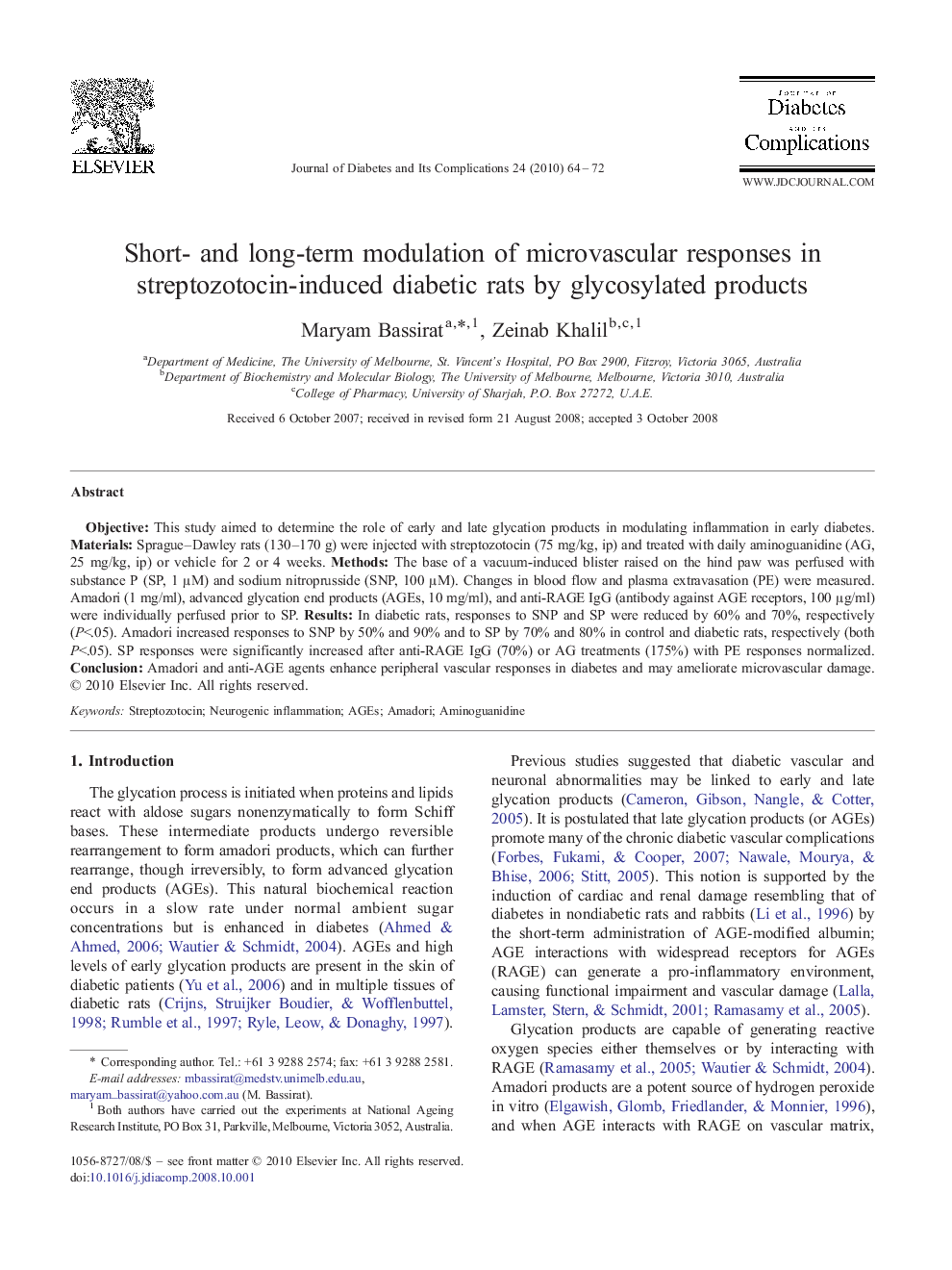| Article ID | Journal | Published Year | Pages | File Type |
|---|---|---|---|---|
| 2804603 | Journal of Diabetes and its Complications | 2010 | 9 Pages |
ObjectiveThis study aimed to determine the role of early and late glycation products in modulating inflammation in early diabetes.MaterialsSprague–Dawley rats (130–170 g) were injected with streptozotocin (75 mg/kg, ip) and treated with daily aminoguanidine (AG, 25 mg/kg, ip) or vehicle for 2 or 4 weeks.MethodsThe base of a vacuum-induced blister raised on the hind paw was perfused with substance P (SP, 1 μM) and sodium nitroprusside (SNP, 100 μM). Changes in blood flow and plasma extravasation (PE) were measured. Amadori (1 mg/ml), advanced glycation end products (AGEs, 10 mg/ml), and anti-RAGE IgG (antibody against AGE receptors, 100 μg/ml) were individually perfused prior to SP.ResultsIn diabetic rats, responses to SNP and SP were reduced by 60% and 70%, respectively (P<.05). Amadori increased responses to SNP by 50% and 90% and to SP by 70% and 80% in control and diabetic rats, respectively (both P<.05). SP responses were significantly increased after anti-RAGE IgG (70%) or AG treatments (175%) with PE responses normalized.ConclusionAmadori and anti-AGE agents enhance peripheral vascular responses in diabetes and may ameliorate microvascular damage.
